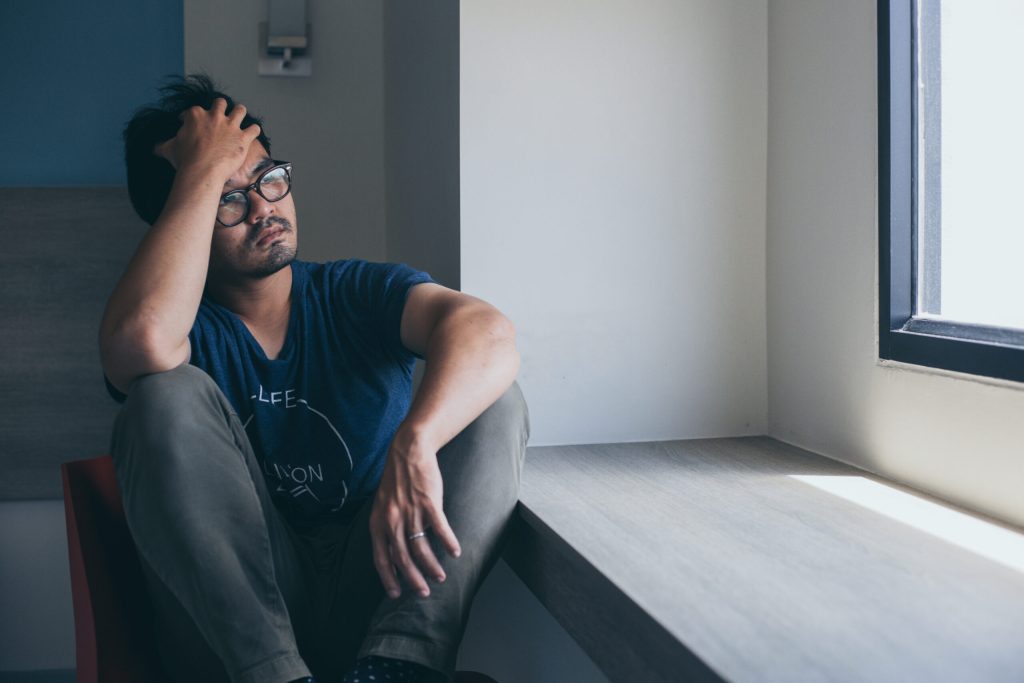Vicodin Addiction Treatment: Signs, Symptoms & Solutions

By The Recovery Village Kansas City
Editor Theresa Valenzky | Medically Reviewed By Dr. Jessica Pyhtila, PharmD
Last Updated: November 6, 2023
Editorial Policy | Research Policy
Vicodin addiction is lifelong but treatable. Completing a Vicodin addiction treatment program and participating in aftercare can help you maintain sobriety.
Vicodin Addiction and Treatment
Vicodin is the most frequently prescribed narcotic drug and the 16th most commonly prescribed medication in the U.S. Although an effective pain reliever, it is also a Schedule II controlled substance that can put you at risk of addiction, abuse and dependence. If you struggle with a Vicodin addiction, recovery is possible with treatment and support.
Why Do People Abuse Vicodin?
Vicodin contains two ingredients: the opioid hydrocodone and the analgesic acetaminophen (the active ingredient in Tylenol). The opioid component is what makes Vicodin a risky drug for abuse. Opioids relieve pain by working on the brain’s mu opioid receptors. However, they also trigger the brain’s reward circuit, causing a surge of the feel-good chemical dopamine. This can put a person at risk of addiction, as they may seek the drug even when it is no longer medically necessary.
Although exact statistics on Vicodin addiction are unavailable, the medication was prescribed to more than 8.5 million Americans in 2020. Among those who abuse prescription opioids like Vicodin, 4%–6% will eventually use heroin.
Signs of Vicodin Addiction
Vicodin addiction often results in multiple symptoms. Although not every person will show all addiction signs, experts determined that having more than two of these symptoms within a year can mean an addiction to Vicodin:
- Taking more Vicodin or taking it for longer than you meant to
- Previous unsuccessful attempts to cut down on or quit Vicodin
- Spending a lot of time obtaining, taking or recovering from Vicodin use
- Craving Vicodin
- Problems meeting obligations at school or work due to Vicodin
- Interpersonal issues linked to Vicodin
- Quitting or cutting back on other activities because of Vicodin
- Taking Vicodin even when it is dangerous
- Taking Vicodin, even though you are aware it has negative effects on your life
- Needing increasing amounts of Vicodin to get the same effects you did at first
- Withdrawal symptoms if you try to cut back on or quit Vicodin
If you’re experiencing signs of Vicodin addiction, help is available. Call 833-939-0318 today to speak to our Recovery Advocates and learn more about treatment options.
Facing a Vicodin addiction can be overwhelming and scary. Fortunately, help is available. The Recovery Village Kansas City offers a comprehensive treatment regimen for Vicodin addiction. Starting with medical detox and rehab and ending with lifelong aftercare support, we are with you every step as you recover from Vicodin. Don’t wait: contact us today.
Effects of Vicodin Abuse
Vicodin has short and long-term side effects. Over the short term, Vicodin abuse can lead to a risk of overdose and death. However, other common side effects can include:
- Lightheadedness or dizziness
- Drowsiness or sedation
- Nausea and vomiting
Over the long term, Vicodin can be harmful to your health and have chronic consequences, including complications like:
- Constipation and bowel obstruction
- Sleep apnea
- Fractures
- Hormonal problems
- Immune system suppression
Vicodin Abuse and Mental Health
When someone has a substance use disorder like Vicodin addiction, it is common to have a co-occurring mental health disorder, which can complicate recovery. More than 25% of people who struggle with drugs like Vicodin have a mental health disorder like:
- Depression
- Anxiety
- Schizophrenia
- Personality disorders
Fortunately, dual diagnosis treatment exists. These programs treat the underlying mental health disorder and Vicodin addiction, increasing the chances of a successful recovery.
Treating Vicodin Addiction
Vicodin addiction treatment starts with medical detox when your body is weaned from Vicodin under the care of medical professionals. Then comes rehab, when you learn coping skills to avoid Vicodin. Lastly is aftercare, a lifelong commitment to focus on recovery to maintain sobriety.
Vicodin Detox
When you quit Vicodin after your body has come to rely on it, withdrawal symptoms are common and can be uncomfortable and overwhelming if left untreated. Withdrawal symptoms can include:
- Muscle aches
- Insomnia
- Sweating
- Runny nose or eyes
- Yawning
- Enlarged pupils
- Abdominal cramps
- Goosebumps
- Nausea or vomiting
- Agitation
- Anxiety
- Diarrhea
However, withdrawal symptoms can be avoided through participation in a medically supervised detox program. Doctors and nurses are available around the clock to help treat withdrawal symptoms. In addition, you may be a candidate for medication-assisted treatment (MAT) with buprenorphine-containing drugs like Suboxone as medically appropriate.
Treatment After Detox
Following medical detox is rehab, where you explore why you started to use Vicodin. Through extensive therapy, you also learn coping skills for avoiding Vicodin. Multiple rehab options exist, including:
- Inpatient rehab: In this program, you live full-time onsite in a structured setting where you can focus on your recovery without distractions.
- Partial hospitalization: After inpatient rehab, you’ll have more free time and independence to manage your own recovery while still receiving several hours of care each day.
- Intensive outpatient rehab: While many clients continue living onsite in intensive outpatient care, others attend treatment then return home. These clients receive fewer hours of care as they transition to life in recovery.
- Traditional outpatient rehab: In this program, you live at home and come to the facility for treatment for up to nine hours a week. You may be able to attend school or work while in traditional outpatient rehab.
Aftercare and Ongoing Support
Following rehab, it is important to focus on your sobriety long-term with aftercare programs that help you prioritize your recovery for the rest of your life. Many aftercare resources are available, including online teletherapy through Nobu, our mental wellness app, referrals to continue medical care, support groups and other recovery resources.
Is Vicodin Addiction Treatable?
Vicodin addiction is a lifelong but treatable condition. Completing a medical detox and rehab program is the first step to maintaining lifelong sobriety.

Explore Our Levels of Care
Our full continuum of customizable treatment plans ensure each patient gets professional care that meets their needs.



